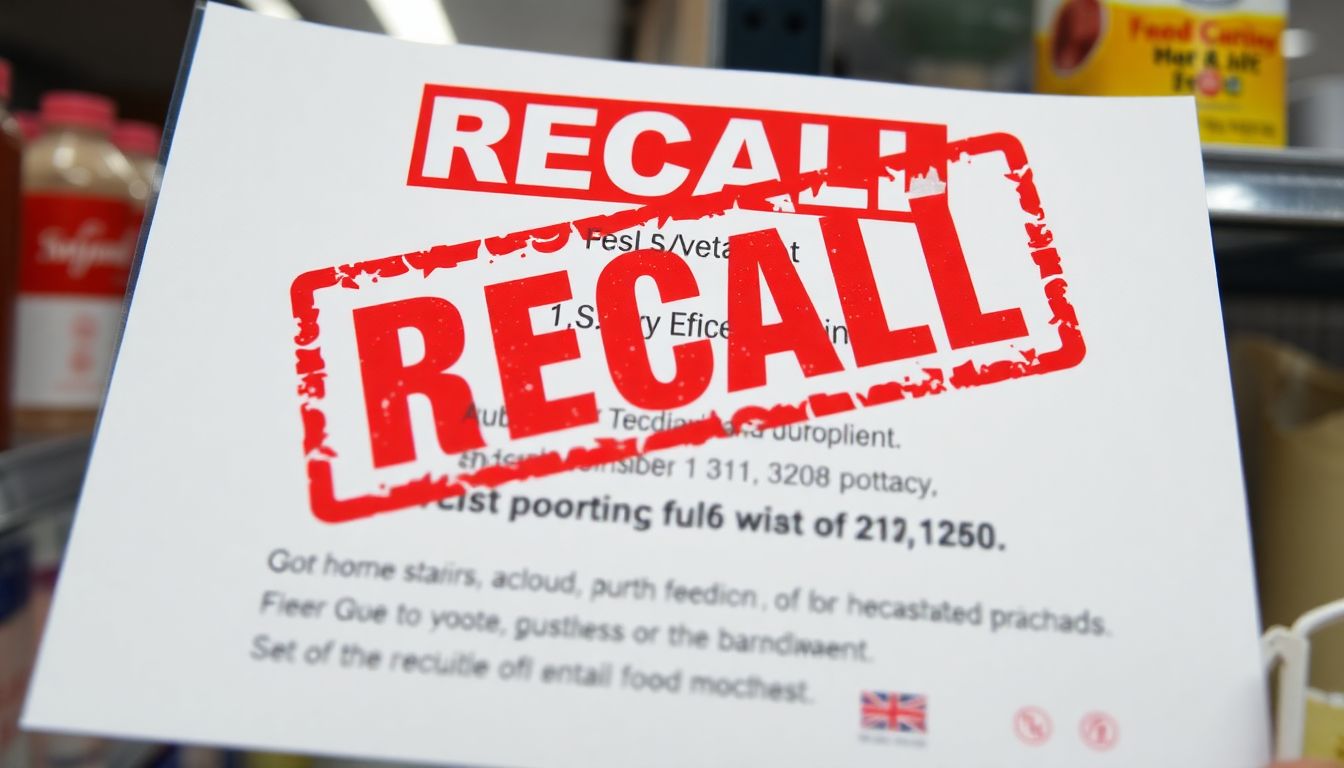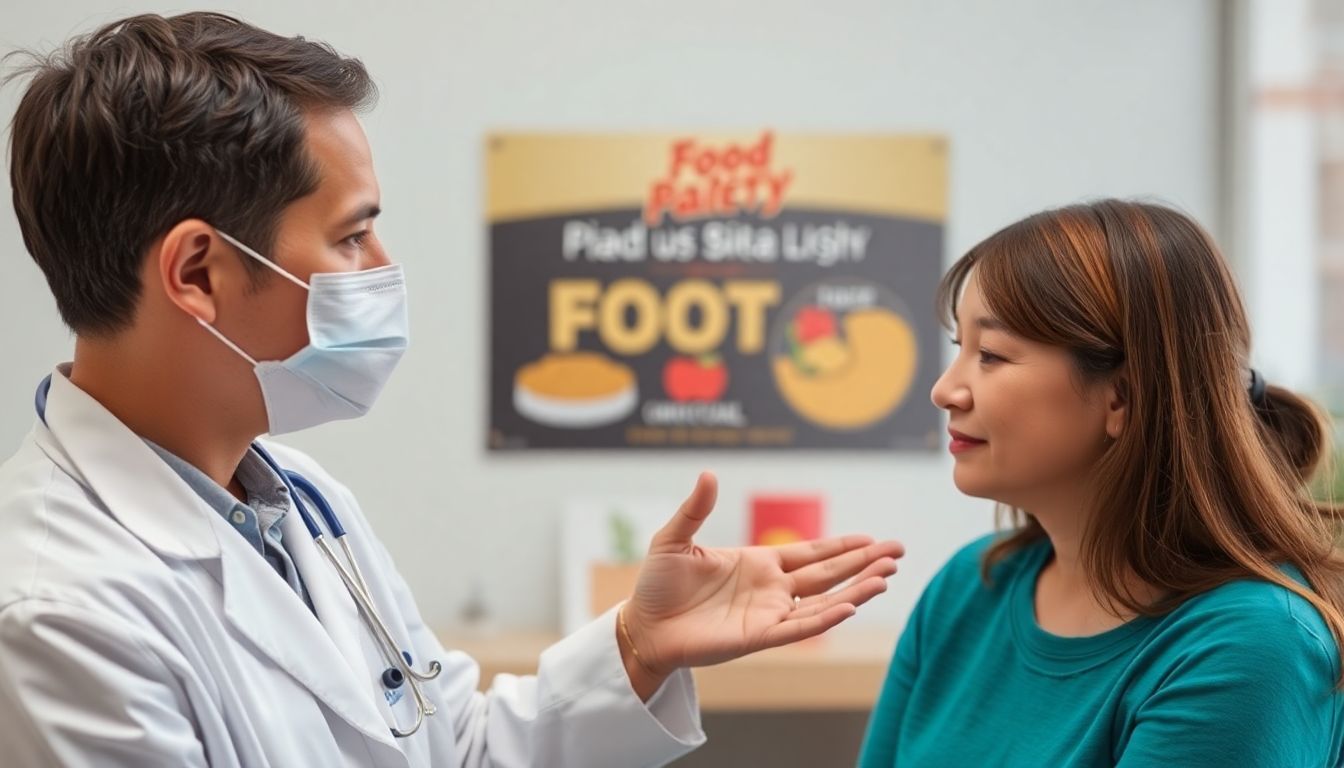Once again, the food industry is shaking under the weight of a salmonella outbreak, this time linked to an unexpected culprit: Frito-Lay potato chips. When you think of potato chips, you think of a guilty pleasure, a flavorful snack to crunch through a movie or a party. But now, this beloved comfort food has taken a dark turn, posing significant health risks to consumers across the nation. The recall involves popular products like Ruffles and Tostitos, and if you’re like me, you might be reeling from the thought that your favorite snack could make you sick. The CDC has made it clear: it’s time to check your pantry.
Frito-Lay Potato Chips Recall Insights
Learn about the recent Frito-Lay potato chips recall and its implications for your health.
– Frito-Lay has recalled certain potato chip products due to potential salmonella contamination, affecting consumer safety.
– Symptoms of a salmonella infection may include diarrhea, fever, and abdominal cramps, which typically appear 6 hours to 6 days after exposure.
– If you experience any symptoms, it’s crucial to seek medical attention promptly and report your consumption of the affected products.
What to Know About the Recall
The recall is not a trivial matter. It involves a comprehensive sweep of multiple Frito-Lay products due to potential salmonella contamination. The recall covers specific lots of Ruffles and Tostitos, known for their iconic texture and flavor. These chips are household names, and the idea that they could harbor something as dangerous as salmonella is unsettling.
Frito-Lay, in response, has issued a statement urging consumers to check the “sell by” dates on their products. This is a proactive step, but it comes with its own set of challenges. Many consumers don’t retain packaging or receipts, and the chips are often consumed shortly after purchase. This makes traceability a complex issue.

Insider Tip: Always document your food purchases when possible. This can be as simple as taking a photo of the packaging, including the “sell by” date. It sounds tedious, but it could save you from a health scare.
The Centers for Disease Control and Prevention (CDC) has been at the forefront of managing this outbreak. Their investigation is ongoing, and they are working closely with Frito-Lay to pinpoint the source of contamination. It’s a daunting task, given the scale at which these products are distributed across the country. The CDC has highlighted the importance of consumer awareness and vigilance during this time.
Read more about the CDC’s investigation here.
A Personal Encounter with Food Safety
A few years ago, I experienced a concerning moment that truly opened my eyes to the importance of food safety. I was at a family gathering, and my cousin Emily had brought a large bag of potato chips from Frito-Lay. Everyone was enjoying the snacks, and I remember thinking how tasty they were. However, a few days later, I received a text from Emily.
She had just learned about a recall affecting the very chips we had consumed. The notification mentioned possible salmonella contamination. My heart sank as I recalled the fun we had sharing those chips, and I worried about the potential consequences.
Within hours, I started experiencing mild stomach cramps and nausea, which led me to the doctor. He reassured me that while I was likely fine, it was wise to monitor my symptoms closely. I learned that salmonella can manifest in various ways, from mild to severe, and that sometimes people don’t even realize they have been affected until several days later.
This experience reinforced for me the critical need to stay informed about food recalls and to take any symptoms seriously. When I got home, I made sure to educate myself further on food safety practices and the signs of foodborne illnesses. This personal encounter not only heightened my awareness but also emphasized the importance of swift action in the face of food safety issues.
What Are the Symptoms of Salmonella Infection?
Salmonella infection, or salmonellosis, is not something to be taken lightly. As someone who once experienced the agony of food poisoning, I can attest to the discomfort and helplessness it brings. The symptoms can range from mild to severe, and it’s crucial to recognize them early.
Typically, symptoms appear 12 to 72 hours after consuming contaminated food. They include diarrhea, fever, and abdominal cramps. In some cases, nausea and vomiting are also present. These symptoms can last anywhere from four to seven days, but the severe cases might require hospitalization, especially if the infection spreads from the intestines to the bloodstream.

One might wonder why salmonella is particularly insidious. The bacteria can survive in a variety of environments, making it a formidable foe in the food safety battle. It thrives in temperatures between 40°F and 140°F, which unfortunately overlaps with conditions often found in kitchens and retail environments.
Insider Tip: Maintain a food diary if you suspect you’ve consumed contaminated products. This can help pinpoint the source and provide critical information to healthcare providers.
Infants, the elderly, and those with weakened immune systems are particularly vulnerable. It’s vital to monitor these groups closely if they’ve consumed potentially contaminated products. The CDC warns that severe cases can lead to chronic arthritis or even death if left untreated.
What to Do If You Have Symptoms
If you find yourself experiencing symptoms of salmonella infection, the first step is not to panic. Instead, focus on hydration. Diarrhea and vomiting can lead to significant fluid losses, so replenishing your body with water and electrolytes is essential.
Consult a healthcare professional promptly if symptoms are severe or persistent. They might recommend stool tests to confirm the presence of salmonella and prescribe antibiotics if necessary. It’s critical to follow their guidance closely, as inappropriate antibiotic use can lead to resistance, complicating treatment.

In my own unfortunate brush with foodborne illness, I learned the hard way that over-the-counter anti-diarrheal medications should be used cautiously. They can sometimes prolong the infection by slowing down the body’s natural process of eliminating the bacteria.
Insider Tip: Keep a basic first-aid kit with oral rehydration salts and a thermometer handy. These can be lifesavers during a foodborne illness episode.
If you’ve purchased the affected Frito-Lay products, the best course of action is to dispose of them immediately. Resist the temptation to taste-test or salvage any portion, as the risk far outweighs the reward. If you’ve already consumed the chips and feel unwell, reach out to your doctor for advice.
In terms of prevention, practice good kitchen hygiene. Wash your hands thoroughly before and after handling food, and ensure that your food preparation surfaces are clean. These small steps can significantly reduce the risk of contamination.
Conclusion
The Frito-Lay potato chips recall is a stark reminder of the vulnerabilities in our food supply chain. While it’s easy to point fingers, the reality is that food safety is a shared responsibility. Companies need robust quality control measures, and consumers must remain vigilant and informed.
The good news is that awareness can lead to action. By staying informed about recalls and practicing good hygiene, we can mitigate the risks associated with foodborne illnesses. Remember, the next time you reach for that bag of chips, it might be worth a second glance at the packaging. After all, it’s better to be safe than sorry.
In the end, the Frito-Lay recall is a wake-up call for both consumers and the industry. It’s a reminder that even the most trusted brands can face challenges, and it’s up to all of us to ensure our food is safe and enjoyable.
FAQs
What caused the Frito Lay potato chips recall recently?
The recall was due to potential contamination with harmful substances.
Who issued the recall for Frito Lay potato chips?
The Frito Lay company issued the recall in cooperation with the FDA.
How can I check if my Frito Lay potato chips are affected?
You can check the recall announcement on the Frito Lay website for details.
What should I do if I have recalled Frito Lay potato chips?
You should throw them away or return them to the store for a refund.
Are all Frito Lay potato chips affected by the recall?
Not all products are affected; only specific batches are involved in the recall.
Why should I trust the information about the Frito Lay recall?
The information is verified by the FDA to ensure consumer safety and transparency.